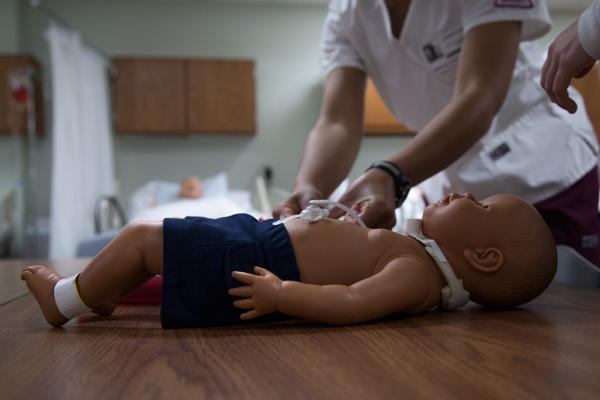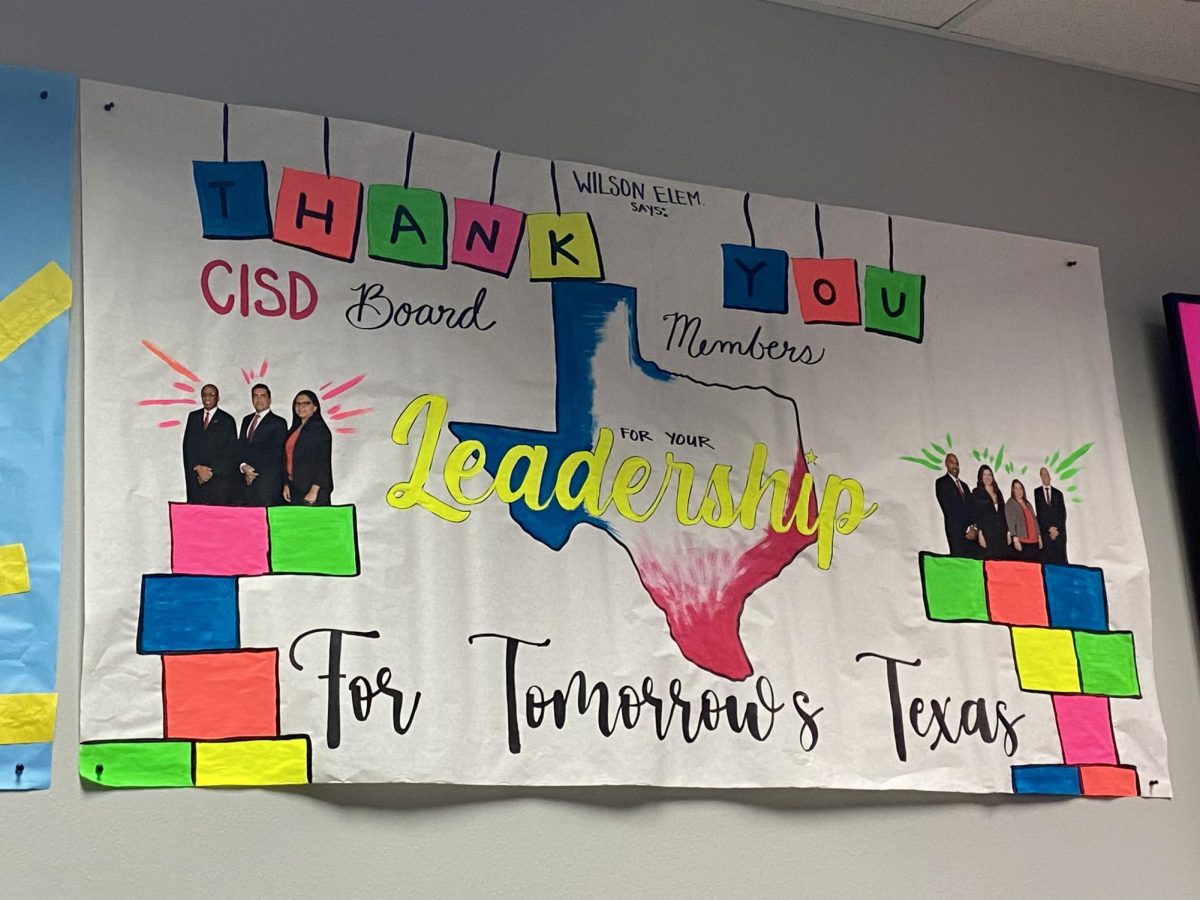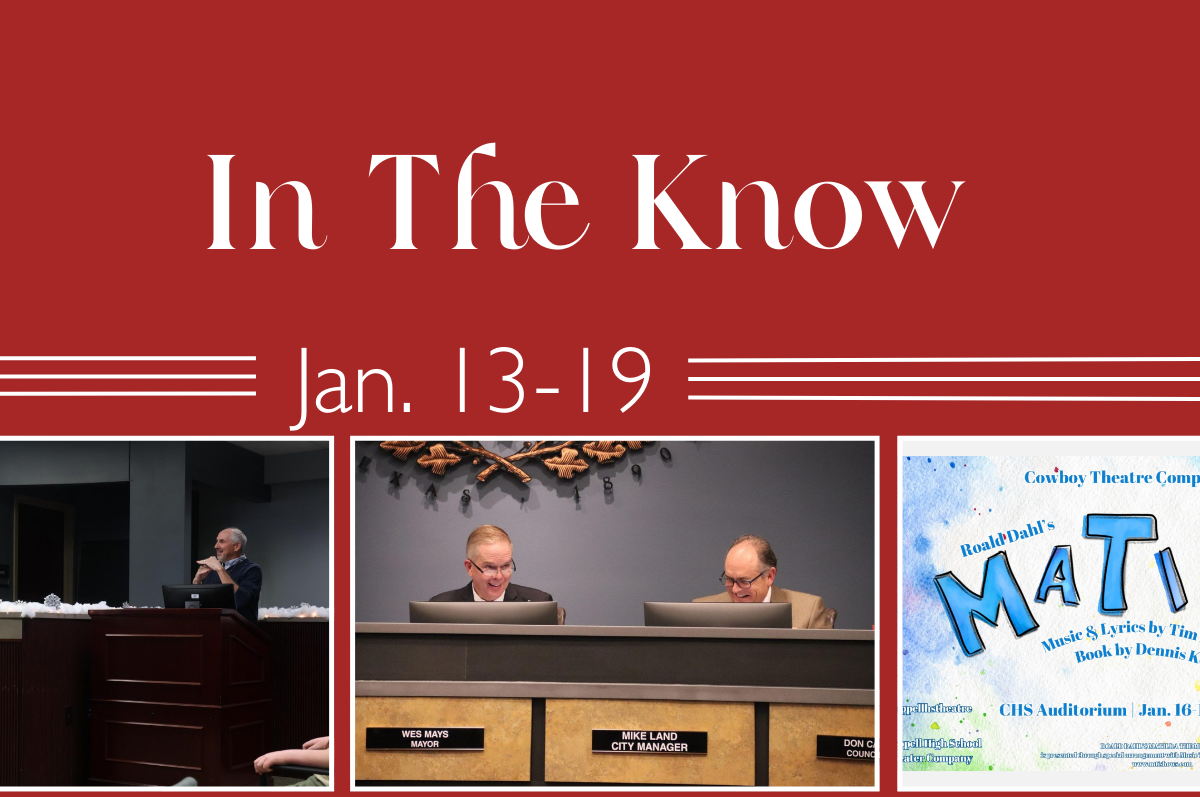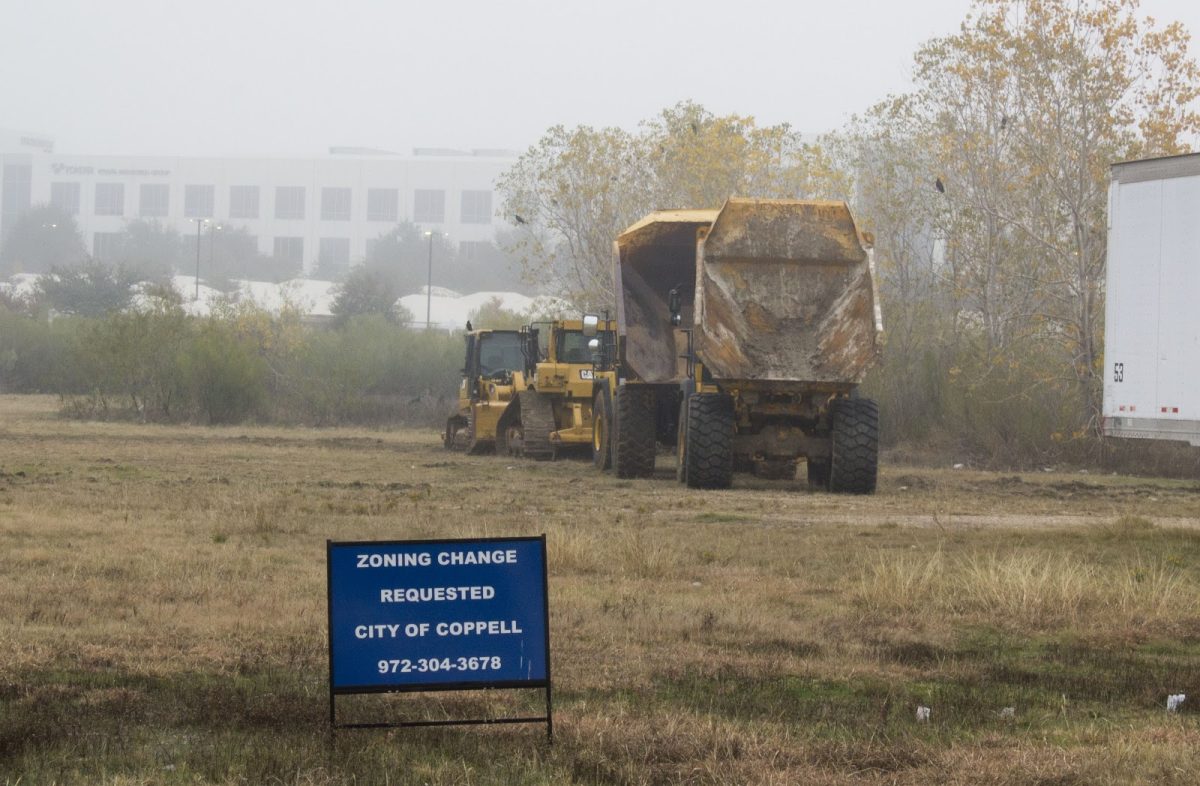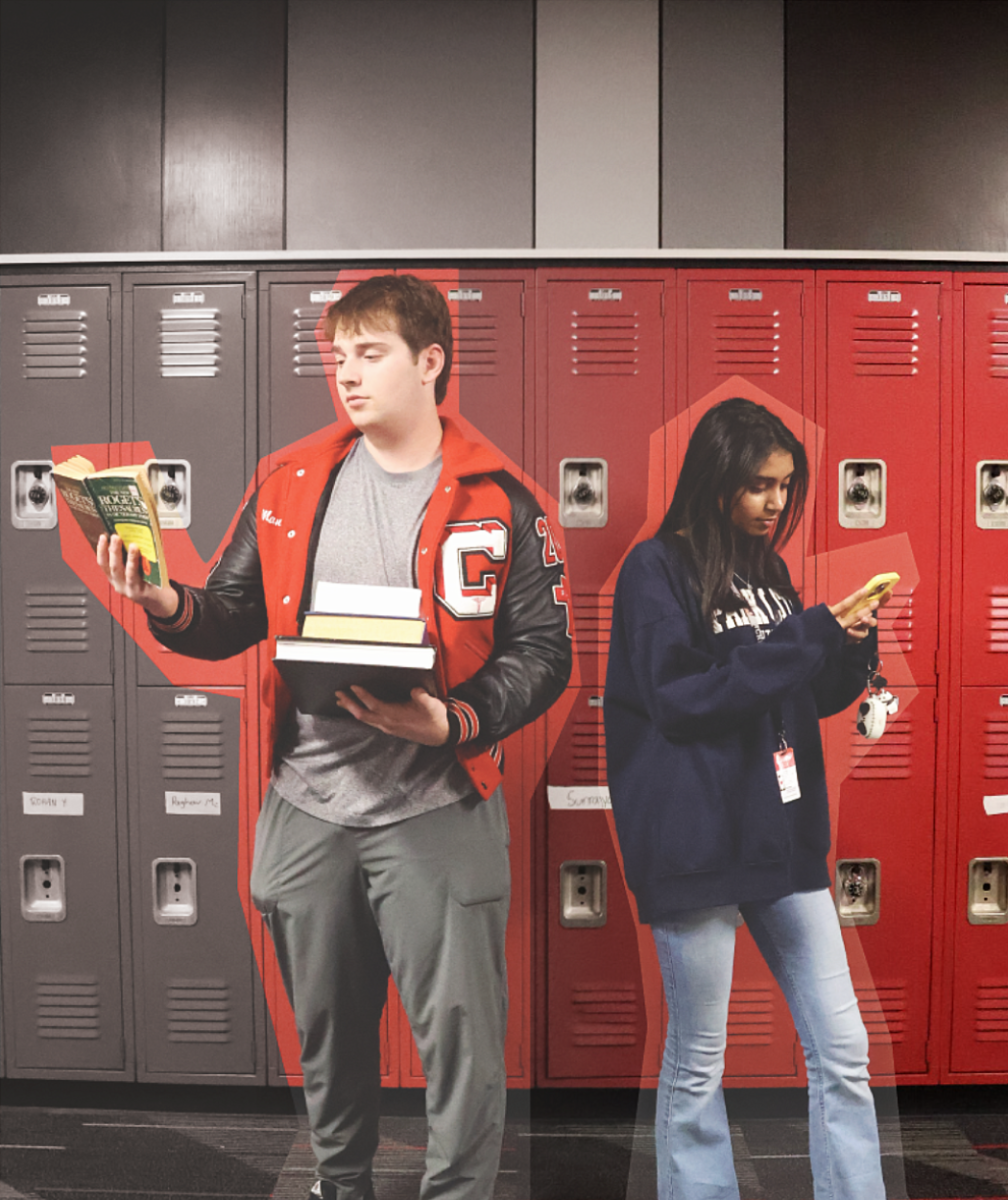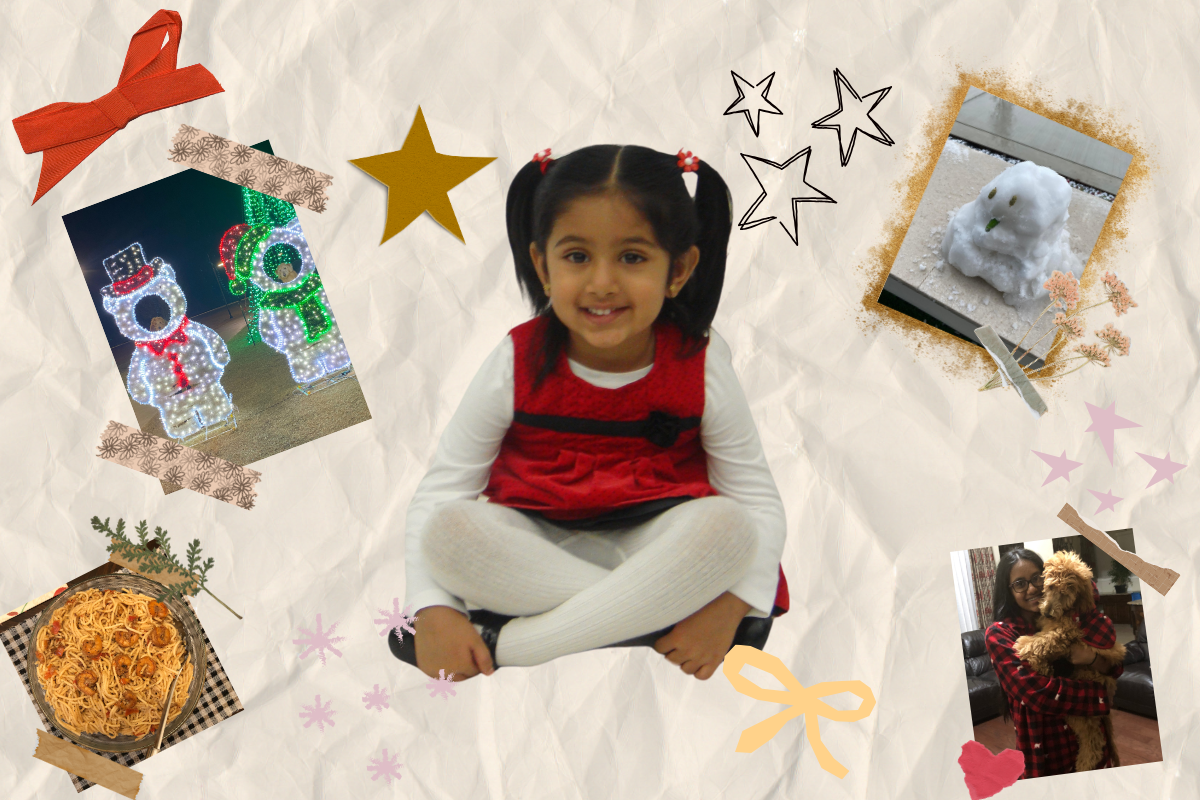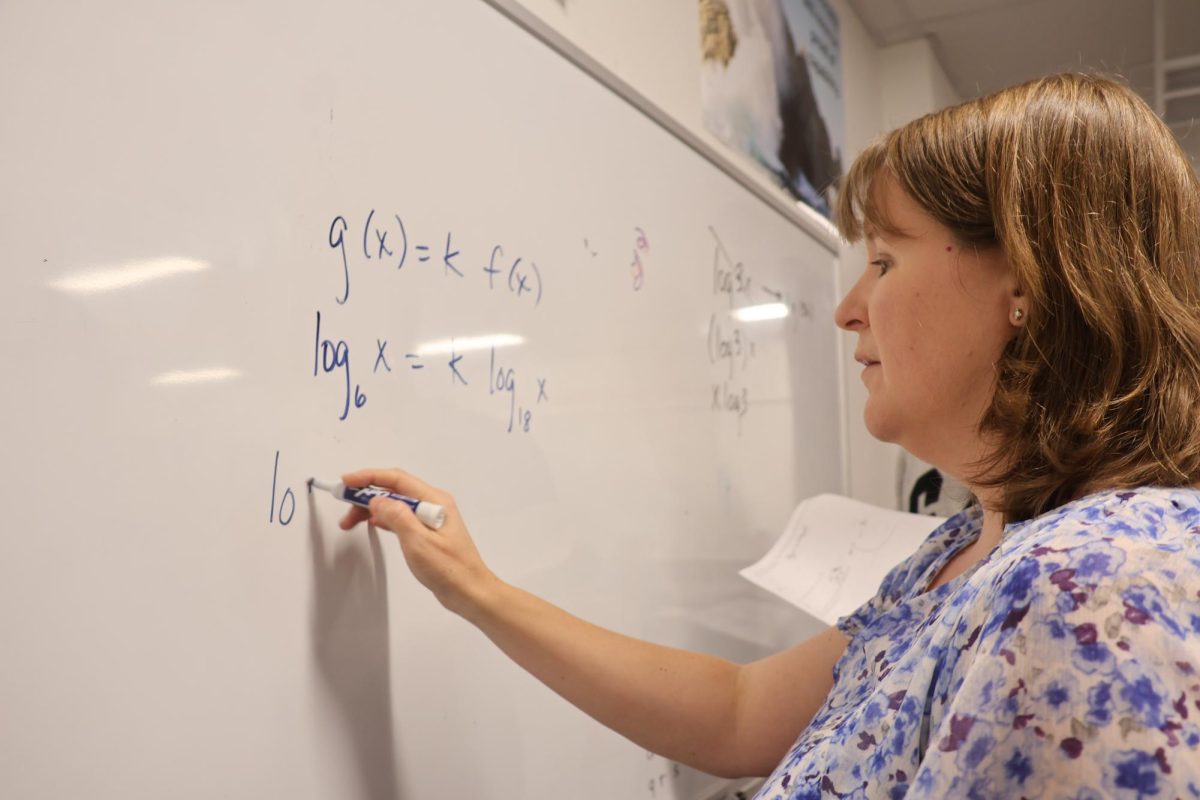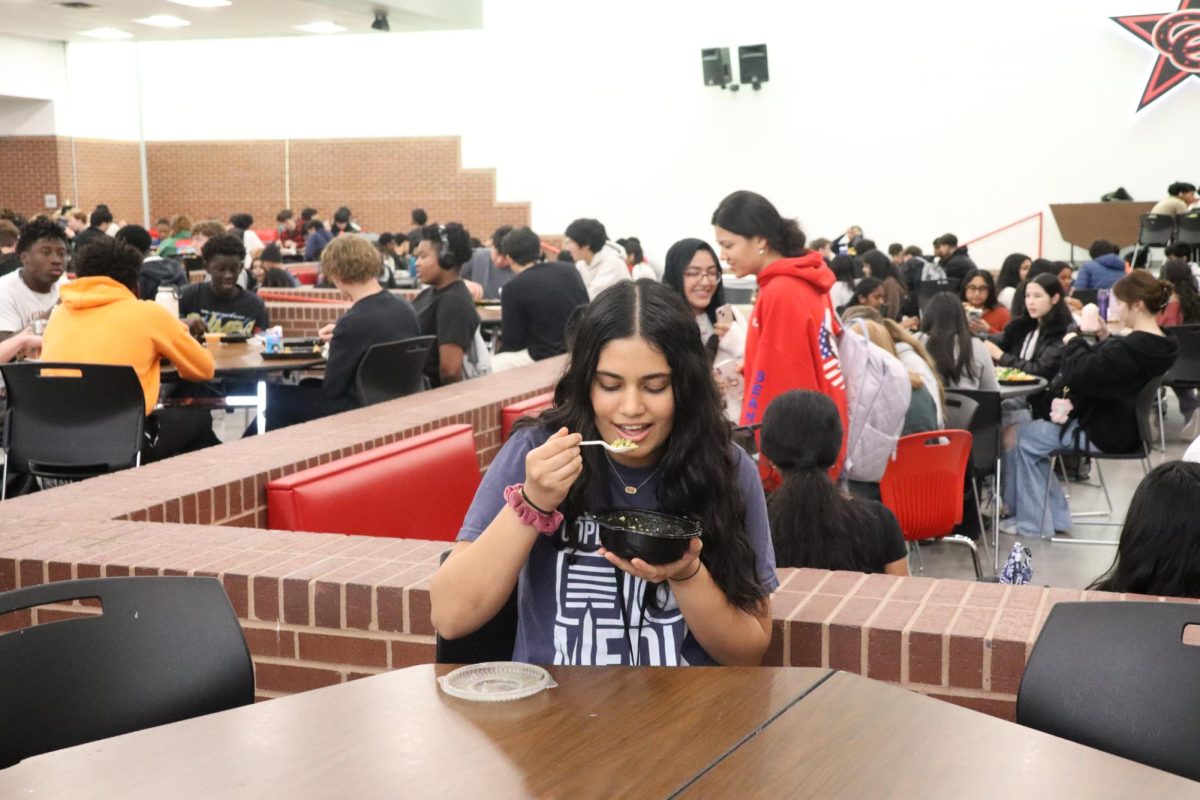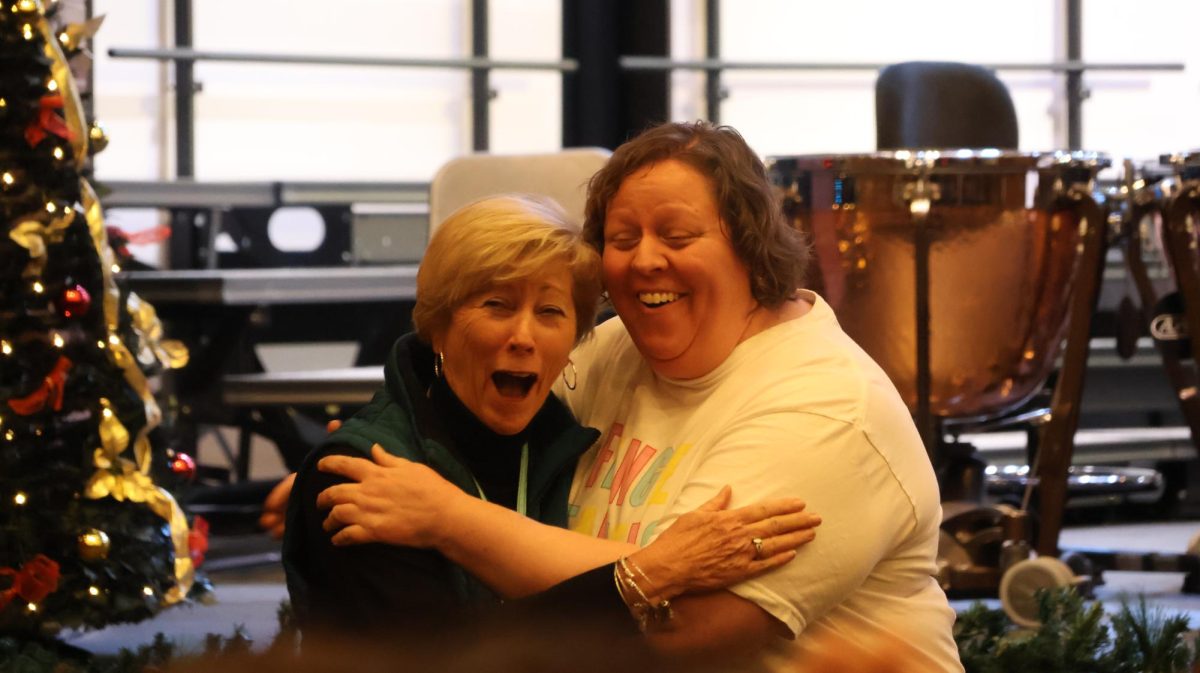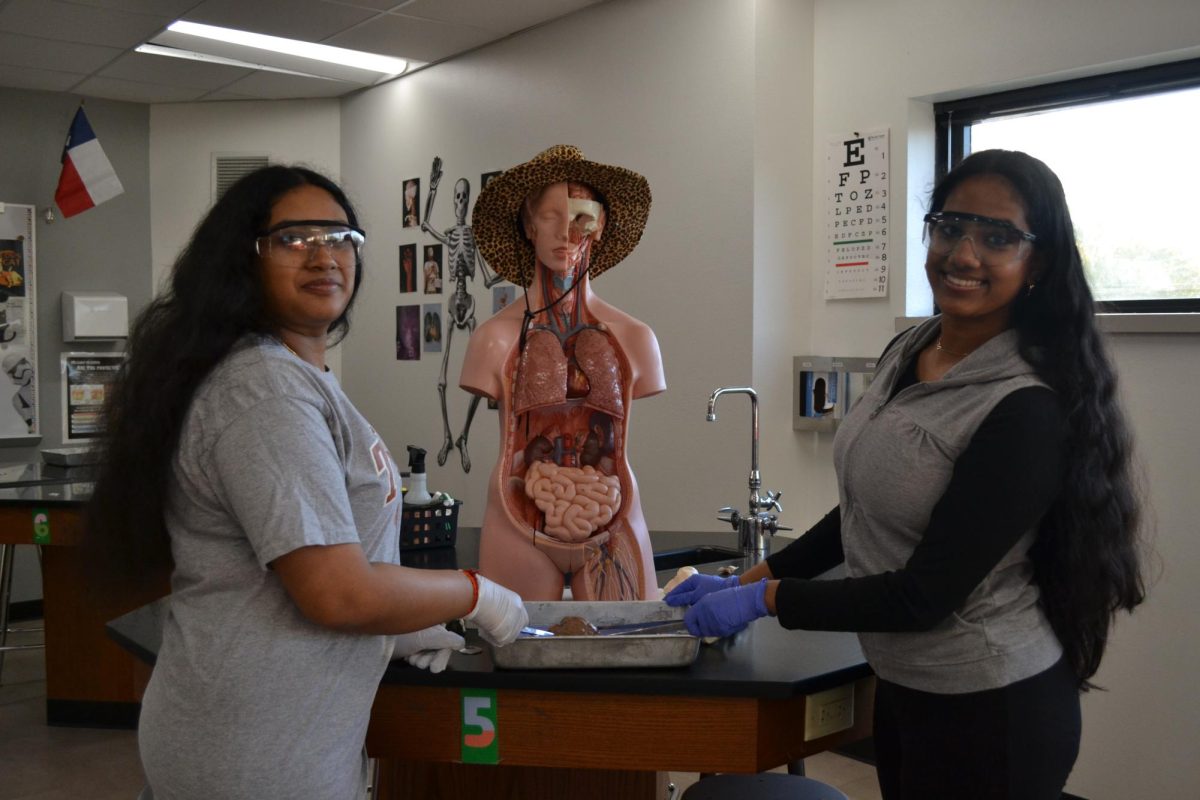By Corrina Taylor
Staff Writer
The room buzzed with excitement as Coppell health science students gathered around the table in anticipation. Electronic infants lay on the table in a state of life or death.
Texas Woman’s University college students clothed in scrubs walked the students step by step in the necessary measures to save the life of the infant before them.
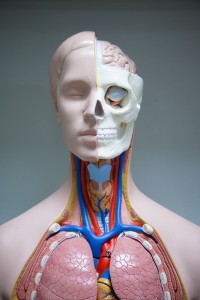
Public Service Academy students had the great opportunity to learn from real medical students about pediatric patients through the use of simulators. They were exposed to new technology and life lessons from the eight college students who joined them.
“Seniors from TWU school of nursing came here to teach about PALS (pediatric advanced life support),” Health Science Technology teacher and PSA lead Debra Johnson said. “It’s a well-respected university because of the stellar nursing program.”
There were four stations presenting situations from a Code Blue situation to an infant with high fever and a seizure. The students were prepped on how to deal with the situations and what to do in order to save the patient.
There were two college students per table, and each one contained an infant stimulation for the health science students to go through. Some of the college students have been in these students’ shoes years ago when they were involved in programs such as Health Occupational Students of America (HOSA).
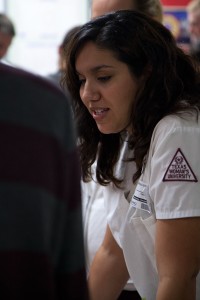
“I feel if I hadn’t done HOSA I wouldn’t have known I wanted to be a nurse as much as I did when I graduated,” TWU senior Clarissa Strickland said. “I knew for sure I wanted to go to nursing school and that’s what I wanted to do, having the opportunity to go to clinics and be involved in HOSA helped me out so much.”
This is not the first time PSA students have had the occasion to have visitors in their program; there are many nurses and others in the field who have paid a visit to Coppell. This is the fourth year for TWU students to visit Coppell and it has proven to be beneficial for both sets of students.
The college students offered their own experiences when talking with the students; it is easier for them to communicate due to the closeness in age. The students bond and learn more through the college students then they could have possibly done through a textbook.
“It’s really informative,” PSA sophomore Rachana Mallavarapu said. “We understand better when people who are already trained and know what’s going on help us understand the situation. The mannequin and babies that are available let us see it more realistically in a real life situation and what you would do.”
The stations proved to be challenging to some of the students. They were no longer dealing with general cases; these were hypothetical and challenging cases. At one simulation students were faced with an infant in a hypothalamic shock caused by low body fluids lost through blood or vomiting.
As a result the students had to treat the infant with more blood volumes simulated through the mannequin as well as apply oxygen when the infant went into respiratory stress. In these situations, the students had no idea what would happen next, their only option was to be ready for anything.
The simulations proved to be an eye opening experience for the PSA students; with the help of the TWU college students, they have become aware of the many challenges of being a nurse.
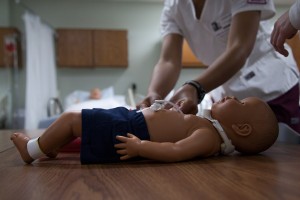
“It started a few years ago with a research project I was doing that looked at high school students perspective of the nursing profession,” TWU associate clinical professor Jennifer Wilson said. “We wanted to dispel some of the common myths that teenagers have about nursing or the nursing profession.”
PSA students were able to taste a bit of the hectic situations that nurses face every day. The program is to continue through the years to better prepare students for their future. So when the day comes they will no longer be saving the life of a simulation, but the life of an actual infant.



